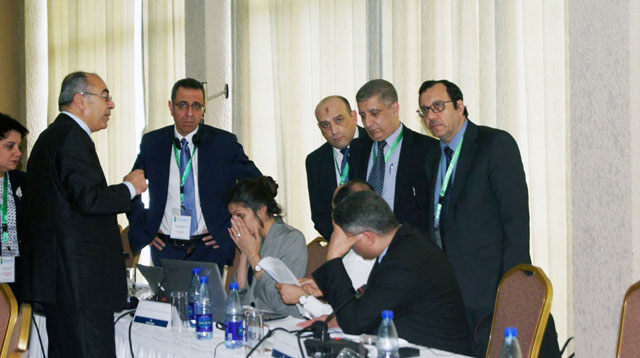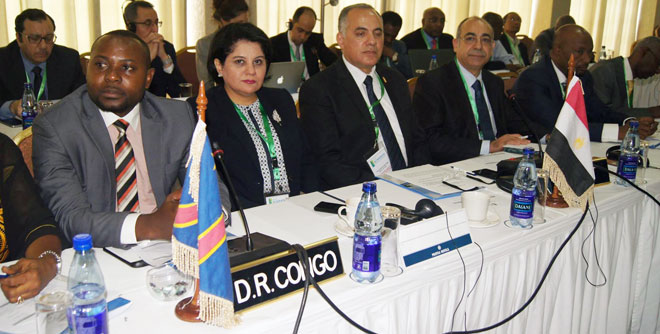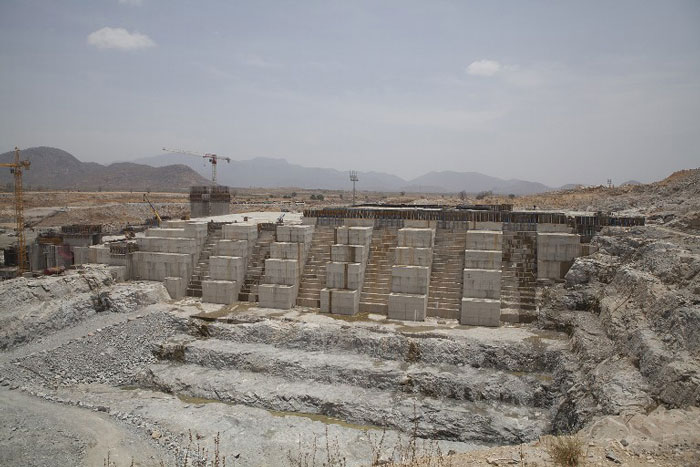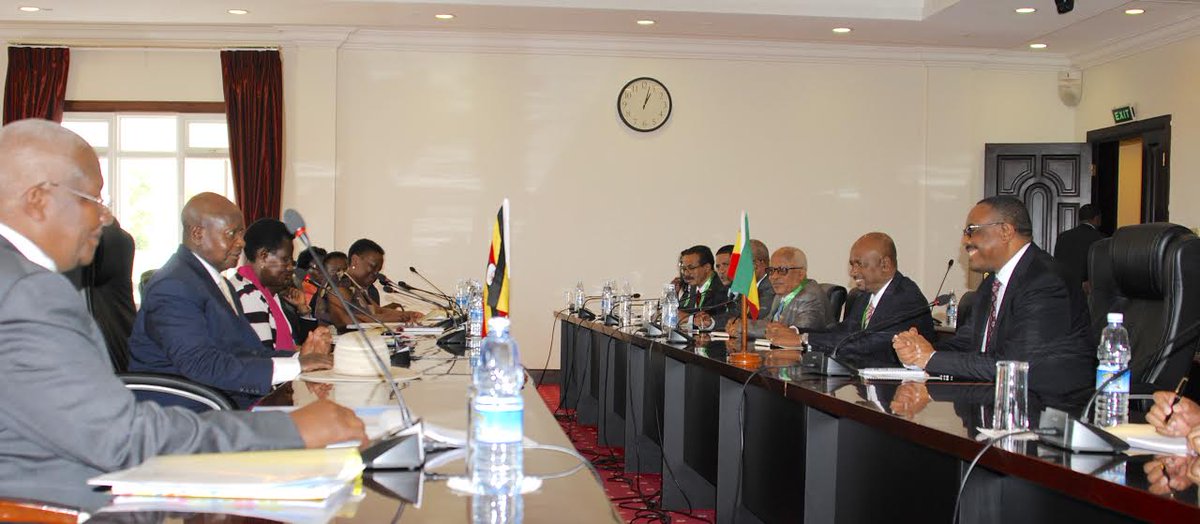
The extraordinary Nile Council of Ministers (Nile-COM) meeting in Entebbe has rejected demands by Egypt for greater control of activities related to the flow of the river Nile.
Uganda, Burundi, Kenya, Tanzania, Rwanda, South Sudan and Sudan were unanimous on Monday in seeking a revision of proposals that Egypt, led by Minister of Water Resources and Irrigation Mohamed Abdel-Ati, had submitted to Nile-COM. Nile-COM is the supreme policy organ of the Nile Basin Initiative (NBI).
According to a statement from the Bile Basin Initiative, Egypt took note of the report on the responses by Nile-Com and asked for more time to study, consult and report back to Nile-COM on their formal position.
Chairman of the Nile-COM Cheptoris, who is also Uganda’s Minister of Water and Environment, told the press after their meeting that their position is that all the countries have equal rights over the water under the Co-operative Framework Agreement (CFA).
“We have rejected demands by the Egyptian government to take full control of the Nile’s water,” said Sam Cheptoris, who is also Uganda’s Minister of Water and Environment. “The other countries also have a say on how the water is used, as they have growing populations that need to use the water as much as the Egyptians.”
The purpose of Monday’s meeting was to facilitate the resumption of Egypt’s full participation in NBI activities that had been frozen since 2010.
The meeting chaired by Cheptoris, was attended by Ministers in charge of Water Affairs from Burundi, Egypt, Rwanda, South Sudan and Sudan. The ministers received a report on the concerns of Egypt and accordingly responded to those concerns.
The Republic of Kenya was represented by the Principal Secretary for Water and Irrigation, while the United Republic of Tanzania was represented by the Deputy High Commissioner to Uganda. DR Congo did not participate.

Egypt froze its operations in NBI in 2010 after six out of 10 upstream states signed a Cooperative Framework Agreement (CFA) to seek more water from the River Nile — a move strongly opposed by Egypt and Sudan.
The Nile Basin Initiative has ten permanent members — Burundi, Democratic Republic of Congo, Egypt, Ethiopia, Kenya, Rwanda, Sudan, South Sudan, Tanzania, and Uganda. Eritrea has observer status.
The upstream countries said they were “tired of first getting permission from Egypt before using river Nile water for any development project like irrigation”, as required by a treaty signed during the colonial era between Egypt and Britain in 1929. The new agreement is designed to eventually replace the Nile Basin Initiative.
One key recent concern by Egypt is the construction of the Grand Ethiopian Dam, which when complete will be Africa’s biggest hydroelectric dam. Some experts argue that filling and operating the dam will reduce the amount of water that flows downstream to Egypt.

No reason for fight over water – Museveni
Museveni earlier this month, suggested that because the region’s ministers were failing to resolve the dispute over the waters of the River Nile, a Summit of Heads of State will be considered to address the issue.
He was speaking at a joint press conference with visiting Ethiopian Prime Minister Hailemariam Desalegn at State House Entebbe after bilateral talks early this month.
Museveni clarified that Uganda had not yet ratified the “Nile Agreement” on the use of the River Nile waters, as it is pursuing a maximum consensus on the issue. He said the disagreement between Egypt and other nations on the River Nile is either due to misinformation or not enough discussion.

“The problem of Africa is not water. The problem of Africa is confusion, under-development and ideological disorientation. Instead of quarreling, we should agree on the Nile, develop the population so that we do not waste the water,” Museveni said.
Responding to a question from the press on the “Nile Agreement”, Museveni said “I have not yet ratified because I want to dialogue. To get a consensus, it is better we have more dialogue, more talking. If you preserve backwardness in Uganda, how does that help the Nile?”.
 The Independent Uganda: You get the Truth we Pay the Price
The Independent Uganda: You get the Truth we Pay the Price






Dear Author:
Today must have been a bad day for Egypt’s outdated policy on Nile Basin and Nile Water issues. The three issues in Nutshell are: The water security, the advance notification, and the method of amendment of the Agreement. The above article shows that, all participants in the meeting said NO to Egypt’s demand. Which means 1) Newly the Sudan shifted completely away from the tradition of standing by Egypt and aligned its stand with the other upper riparian countries. 2) With this new stand, the colonial era agreement–from 1929, and the 1959–between Egypt and the Sudan are not going to have any major relevance, if any, for the future of Nile Water negotiation. 3) Interestingly, it looks like that Ethiopia was not a party in this meeting.
One way to go forward could be to reframe the discussion away from the Nile water and refocus the topic in its core as “sustainable fresh water supply in the Nile basin countries”. This reframing will help the discussion to develop towards solution seeking approach; under this framework discussion could include 1) Nile water, 2) desalination, 3) preventing the sinking of the northern Delta, 4) erosion prevention and environmental management in the Nile source countries, and so on. Egypt needs to rewrite its fresh water, Environmental, and bio-ecological policies. Further, her irrigation must transform itself from half-way fresh water destroying–to efficient and hundred-percent life giving undertaking.
Win-Win solution is the only way forward for the happiness of everybody in the Nile Basin. Thanks
Thank you fora sharing your thoughts on the best way forward for the Nile Basin states. Egypt will give their final position soon but Uganda’s Museveni is calling for a consensus